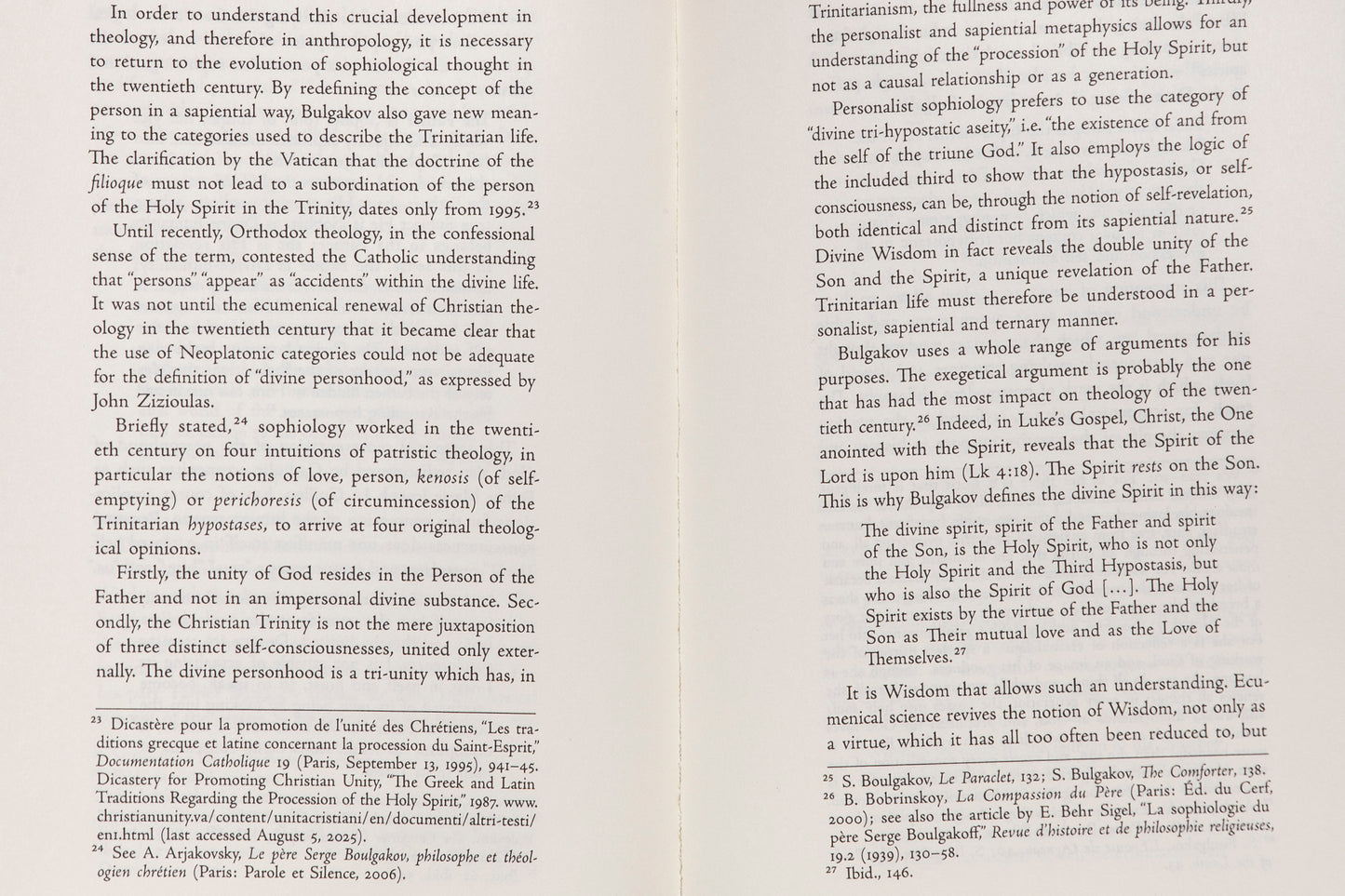What is Ecumenism?
What is Ecumenism?
A Metaphysical Vision
By Antoine Arjakovsky
Foreword by Odair Pedroso Mateus
148 pp
Couldn't load pickup availability
About the Book
According to Antoine Arjakovsky, the contemporary crisis of the ecumenical movement is linked to a narrow, secularized, strictly inter-denominational conception of ecclesial life. But when understood as an experience of divine humanity, the life of the Church can neither be limited to an institutional conception nor be hermetically separated from the life of the world.
Drawing on the religious philosophy of Nikolai Berdyaev, Sergei Bulgakov, Leo Shestov, Pope Francis, John Milbank, Emmanuel Levinas, Abdennour Bidar, Ken Wilber, as well as his own ecumenical commitment spanning over 40 years, Arjakovsky proposes a metaphysical rethinking of the foundations of ecumenical faith-reason in order to hold together the poles of identity and otherness. He explores the different meanings of ecumenism and opens the way to a further meaning that, by reconciling reason and belief, enables the encounter of all cultures, disciplines, and religious traditions—a project he describes as a new spiritual and transdisciplinary epistemology, at once personalist, sophiological, ternary, and eschatological.
The book concludes by contrasting metaphysical reflection with the different possible forms of commitment and vocation in favor of a truer, more beautiful, more peaceful, more just world. To escape the modern conception whereby we only believe what we see, the author proposes a meta-modern vision of the life of the spirit, where we must believe in order to see. From this perspective, peace is understood as both a gift and a responsibility, as a presence and an art of living. The professions of diplomat or bridge-builder then become everyone’s business.
Praise
About the Author
View full details






